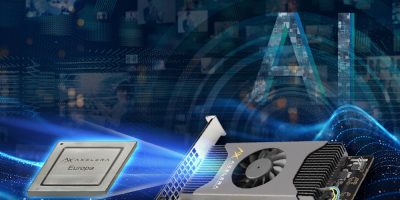With the recently launched nRF54LV10A, Rutronik is expanding Nordic Semiconductor’s ultra-low-power wireless portfolio with a new, particularly energy-efficient system-on-chip (SoC) for miniaturised applications in the medical and wearable segment. The SoC combines an extremely compact chip-scale package with high computing power, advanced security features and a radio architecture that supports Bluetooth LE, proprietary 2.4 GHz protocols and Bluetooth channel sounding in low-voltage operation for the first time. Samples and development kits of the nRF54LV10A are available through an early access program.
The nRF54LV10A sets a new benchmark in the field of low-voltage wireless SoCs. Developed for battery-powered medical devices such as continuous glucose monitors (CGMs) and wearable biosensors, its supply voltage of only 1.2 to 1.7 volts allows it to be powered directly by silver oxide button cells – without additional voltage regulators.
At its core is a 128 MHz Arm Cortex-M33 processor combined with a 128 MHz RISC-V coprocessor, which provides accelerated calculations and energy-efficient processing. In addition, the SoC has 1 MB NVM and 192 KB RAM, enabling demanding real-time applications and wireless protocols to run simultaneously.
The integrated 2.4 GHz transceiver supports Bluetooth LE, Bluetooth Channel Sounding for accurate distance measurements, and proprietary protocols with data rates up to 4 Mbps – ideal for latency-critical sensor applications.
For safety-critical healthcare products, the nRF54LV10A offers comprehensive protection mechanisms, including secure boot, secure firmware update, trusted execution environment via Arm TrustZone, cryptographic accelerators and integrated tamper detection.
Nordic’s architecture – including low-leakage RAM, multi-protocol radio and global RTC in system-OFF state – facilitates the development of long-lasting wearables with minimal system complexity. Low-voltage GPIOs allow sensors and MCUs to be connected without level shifters, further reducing space requirements.
Application examples:
Continuous glucose monitors (CGMs)
Wearable biosensors & medical monitoring devices
Connected-health solutions
Fitness & wellness trackers
Low-voltage sensor nodes and compact IoT devices







